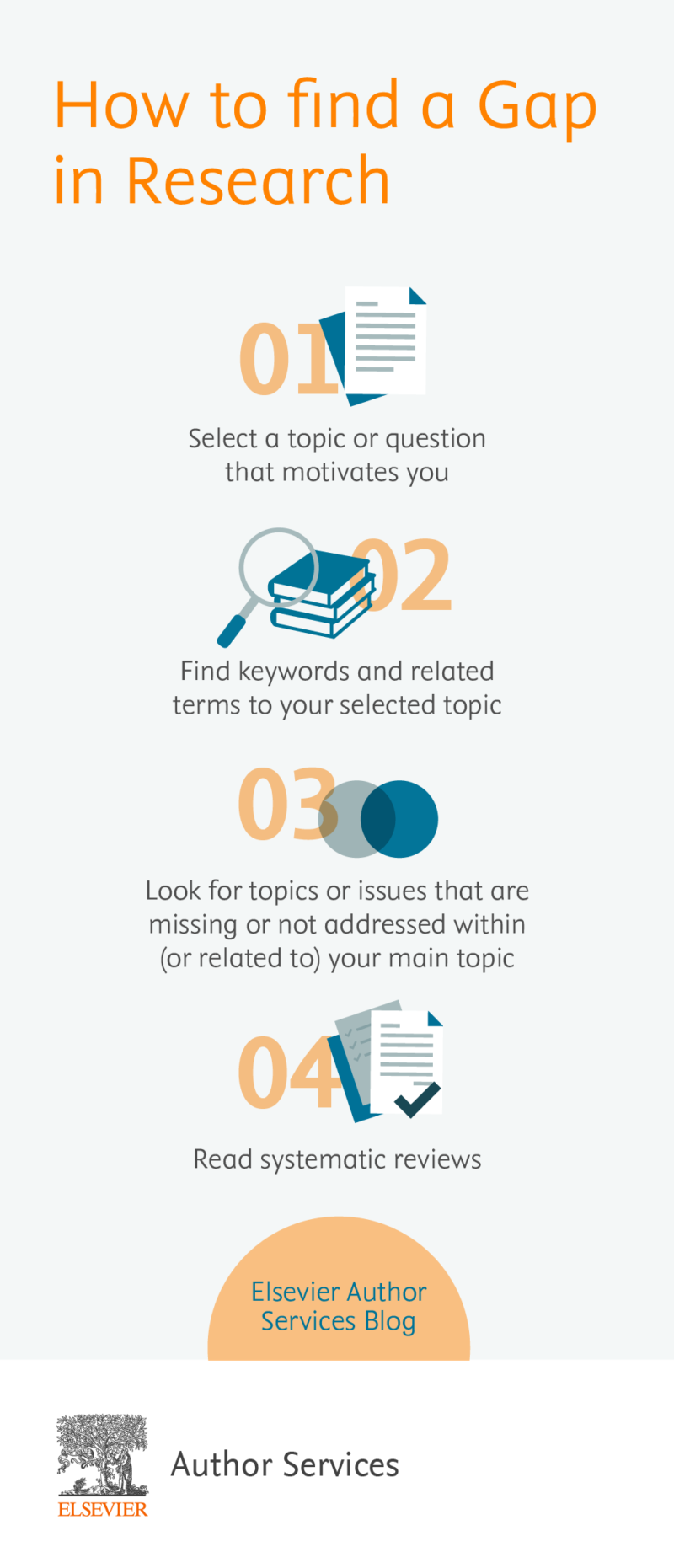Table of Contents
If you are a young researcher, or even still finishing your studies, you’ll probably notice that your academic environment revolves around certain research topics, probably linked to your department or to the interest of your mentor and direct colleagues. For example, if your department is currently doing research in nanotechnology applied to medicine, it is only natural that you feel compelled to follow this line of research. Hopefully, it’s something you feel familiar with and interested in – although you might take your own twists and turns along your career.
Many scientists end up continuing their academic legacy during their professional careers, writing about their own practical experiences in the field and adapting classic methodologies to a present context. However, each and every researcher dreams about being a pioneer in a subject one day, by discovering a topic that hasn’t been approached before by any other scientist. This is a research gap.
Research gaps are particularly useful for the advance of science, in general. Finding a research gap and having the means to develop a complete and sustained study on it can be very rewarding for the scientist (or team of scientists), not to mention how its new findings can positively impact our whole society.
How to Find a Gap in Research
How many times have you felt that you have finally formulated THAT new and exciting question, only to find out later that it had been addressed before? Probably more times than you can count.
There are some steps you can take to help identify research gaps, since it is impossible to go through all the information and research available nowadays:
- Select a topic or question that motivates you: Research can take a long time and surely a large amount of physical, intellectual and emotional effort, therefore choose a topic that can keep you motivated throughout the process.
- Find keywords and related terms to your selected topic: Besides synthesizing the topic to its essential core, this will help you in the next step.
- Use the identified keywords to search literature: From your findings in the above step, identify relevant publications and cited literature in those publications.
- Look for topics or issues that are missing or not addressed within (or related to) your main topic.
- Read systematic reviews: These documents plunge deeply into scholarly literature and identify trends and paradigm shifts in fields of study. Sometimes they reveal areas or topics that need more attention from researchers and scientists.

Keeping track of all the new literature being published every day is an impossible mission. Remember that there is technology to make your daily tasks easier, and reviewing literature can be one of them. Some online databases offer up-to-date publication lists with quite effective search features:
- Elsevier’s Scope
- Google Scholar
- PubCrawler
- Feedly
Of course, these tools may be more or less effective depending on knowledge fields. There might be even better ones for your specific topic of research; you can learn about them from more experienced colleagues or mentors.
Find out how FINER research framework can help you formulate your research question.
Literature Gap
The expression “literature gap” is used with the same intention as “research gap.” When there is a gap in the research itself, there will also naturally be a gap in the literature. Nevertheless, it is important to stress out the importance of language or text formulations that can help identify a research/literature gap or, on the other hand, making clear that a research gap is being addressed.
When looking for research gaps across publications you may have noticed sentences like:
…has/have not been… (studied/reported/elucidated)
…is required/needed…
…the key question is/remains…
…it is important to address…
These expressions often indicate gaps; issues or topics related to the main question that still hasn’t been subject to a scientific study. Therefore, it is important to take notice of them: who knows if one of these sentences is hiding your way to fame.
Language Editing Services by Elsevier Author Services:
Find more about our Language Editing Plus! Done within 5 working days, it includes unlimited rounds of language review, a manuscript formatting to meet the requirements of the journal of your choice, a customized cover letter and an Assessment Report on your document (and more). You can look up the final price via our Language Editing Simulator:













